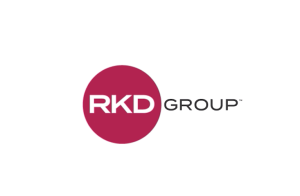Google.org, the nonprofit outreach operation of parent firm Alphabet, has launched a new program focused on introducing generative artificial intelligence (AI) to nonprofits. Generative AI spawns output such as images or text based on whatever input it is given, such as a nonprofit’s mission, communication tone, audience demographics, campaign results and other data.
The new six-month program, Google.org Accelerator Generative AI, will train and support nonprofit staff in maximizing results from generative AI. Google.org has earmarked more than $20 million in support of participating organizations. The first round of program participants includes 21 nonprofits.
The program, which was announced by Google.org Senior Director of Global Advocacy and Head of Asia Pacific Annie Lewin, comes on the heels of a Google.org survey which found that while four out of five nonprofit leaders believe generative AI might be useful to their work, their organizations did not have the funding, tools and training to implement generative AI-based initiatives.
As part of the program, staff at each organization will be able to avail themselves mentoring services, as well as support, training and workshops. The initial slate of participating nonprofits includes:
* Benefits Data Trust, Philadelphia, Pennsylvania, a nonprofit that helps people navigate assistance programs for food, healthcare and other needs, is building an AI-powered assistant that helps its frontline workers aid clients in enrolling in public benefits.
* Beyond 12, Oakland, California, which supports first-generation college students, is developing an AI-supported coaching program.
* CareerVillage, Palo Alto, California, is expanding the abilities of its AI Career Coach, which aids individuals from traditionally underrepresented communities in maximizing employment and career path opportunities.
* Climate Policy Radar, London, United Kingdom, will incorporate a generative AI-supported search function into its climate law and policy database.
* CodePath, San Francisco, California, will launch AI tutoring and mentorship solutions to provide immediate, personalized career support to underserved communities.
* EIDU Berlin, Germany, will use the AI capabilities in furthering tech-enabled solutions that provide personalized tutoring services in low- and middle income-countries.
* Full Fact, London, England, is building a generative AI tool to analyze and summarize large volumes of health misinformation across various media, thereby reducing fact checkers’ workloads.
* IDinsight, Inc. New Delhi, India.is augmenting its ability to provide information to health-related inquiries from new or expectant mothers in South Africa through AI-powered responses.
* Jacaranda Health, Nairobi, Kenya, will boost its ability to help governments provide care information scales digital health services to mothers who live in underserved areas using Natural Language Processing (NLP) input rooted in African languages.
* Justicia Lab, New York, New York is creating an AI assistant that will help immigrants understand their options for attaining legal staus.
* Materiom, London, United Kingdom is creating a generative AI tool that will help entrepreneurs create recyclable or biodegradable packaging and textiles.
* mRelief, Chicago, Illinois, is creating an assistant to help with applying for Supplemental Nutrition Assistance Program benefits.
* Opportunity@Work, Washington, DC, is using AI to generate content that helps employers gain greater insights into career paths that don’t rely solely on degree-based qualifications.
* Partnership to End Addiction New York, New York, is enhancing the reach and quality of its addiction support services for families by using AI to build training simulations and quality assurance tools.
* Quill.org, New York, New York, is building a tool that will provide students with immediate, AI-powered feedback and coaching on writing and reading comprehension activities.
* Tabiya, Washington, D.C. is enhancing its generative AI tool which provides jobseekers in low- and middle-income countries with tailored and relevant advice at scale.
* Tarjimly, Mountain View, California will boost its AI-powered translation capabilites to empower human translators for refugees.
* U.S. Digital Response Oakland, California, will help governments understand how to use generative AI effectively to improve efficiency and impact, starting with a language access tool to reduce barriers to unemployment insurance.
* World Bank, Washington, D.C., is developing a generative AI tool to make development research more accessible, extracting evidence-based findings from research to help policymakers make decisions faster and direct resources more effectively.
Three participants — Benefits Data Trust, mRelief and Terjimly — will receive full-time support from Google staff members through the Google.org Fellowship, a program in which Google employees are given leave from their jobs to work with nonprofits and civil entities full time.








